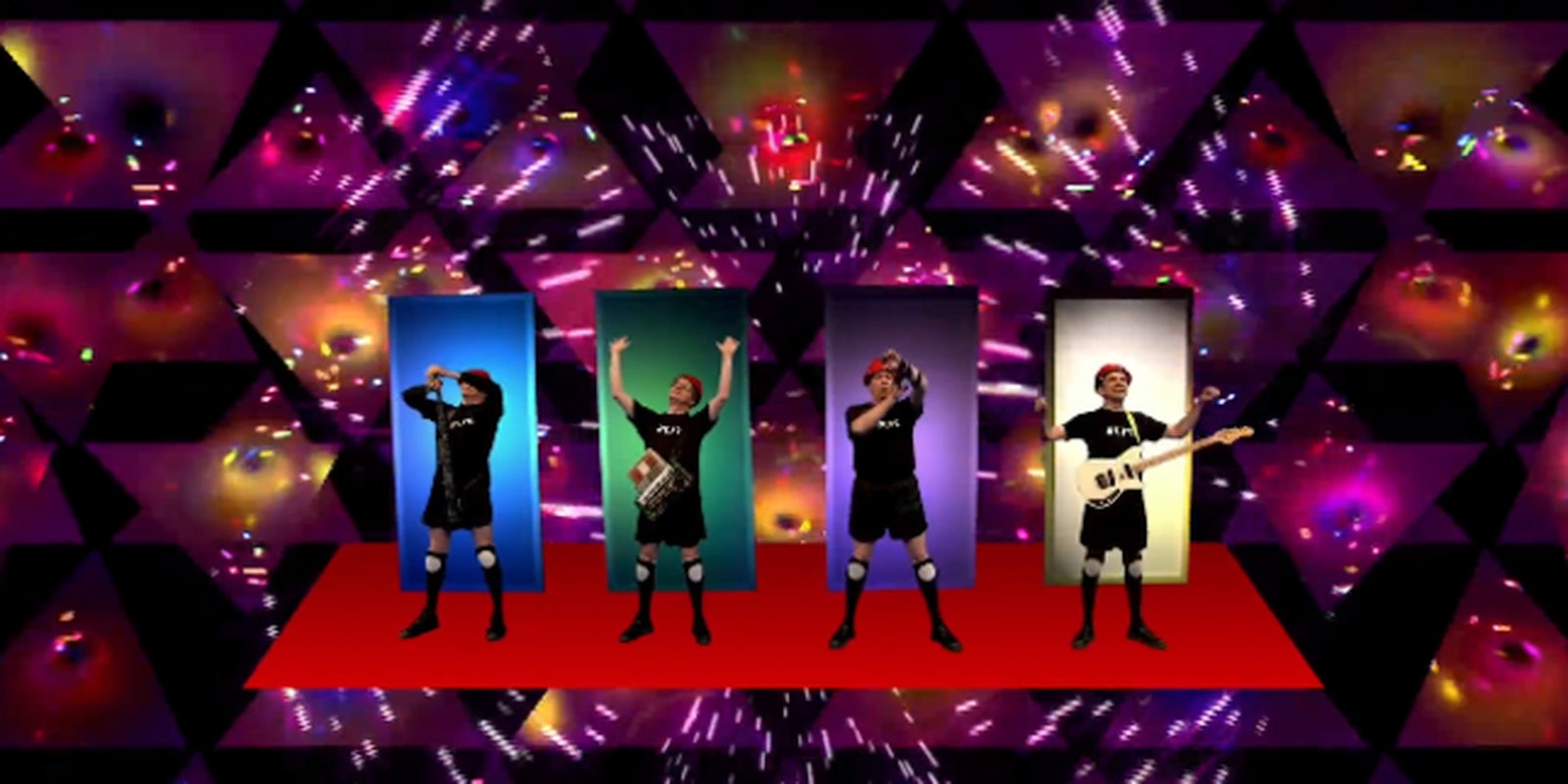If you’re of a certain age, you likely remembering watching Sesame Street or Pee-Wee’s Playhouse as a kid, but do you remember the music? Philip Glass and Herbie Hancock provided music for Sesame Street, and the Residents soundtracked Pee-Wee’s Playhouse. In hindsight, these (possibly) missed connections are key to the shows’ histories, and they prove just how bonkers children’s programming could be.
Mike Haley, a musician and host of the experimental music podcast Tabs Out, recently created a Tumblr devoted to this strange intersection of pop culture. Experimental Music on Children’s TV (EMOCT) documents the soundtracking and musical guests of shows like Reading Rainbow, Mister Rogers’ Neighborhood, and 3-2-1 Contact, via YouTube clips.
Appropriately, Haley’s Tumblr was partially inspired by his own daughter, who’s three-years-old.
“She enjoys messing around with some of my electronics, turning knobs and making weird sounds,” he says. “Plus, I usually have tapes that I get for Tabs Out playing all day, so bizarre sounds are pretty normal to her. She really dug the Bruce Haack clip from Mr. Rogers and would dance around and what not like the kids in the video.
“About a week ago, I dug around, seeing what else was out there that was similar and was sorta amazed at all the stuff I was finding. I just sorta thought this would make for a pretty sweet blog. Got the Tumblr, put up a handful of them, told some friends. Figured I would do it for a week or two, then it would run it’s course and be done with. But the more I looked, the more I found.”
Fred Rogers’s button-up appearance certainly betrayed his underground music cred. Electronic music pioneer Bruce Haack was featured on Mister Rogers’ Neighborhood in 1968, and Rogers later played a Roland synthesizer on the show.
Jim Henson’s pre-Muppet Show short films were known for their experimental narratives, and he was one of the most well-known figures adding that experimentation to children’s programming. Vice noted his work with Raymond Scott, an experimental musician who was at one time a composer for Looney Tunes. They collaborated on “Wheels That Go,” a 1967 short, which is featured on EMOCT.
“There definitely seems to be less modern examples, but there are some,” Haley says. “There’s a public access show called Chic-A-Go-Go that is like a goldmine for musical performances. Yo Gabba Gabba! has some pretty cool stuff, but nothing like some of these clips with artists explaining synthesizers and stuff like that from the ‘80s.”
While experimental music has fallen off in children’s shows, at least we have digital proof of that one time Mr. Wizard got weird, and the Muppet Babies went avant garde.
Screengrab via yogabbagabba/YouTube


